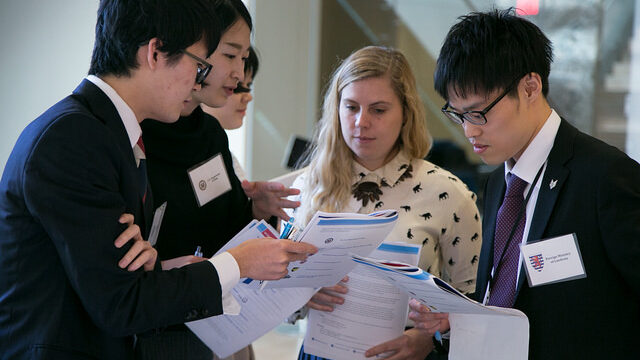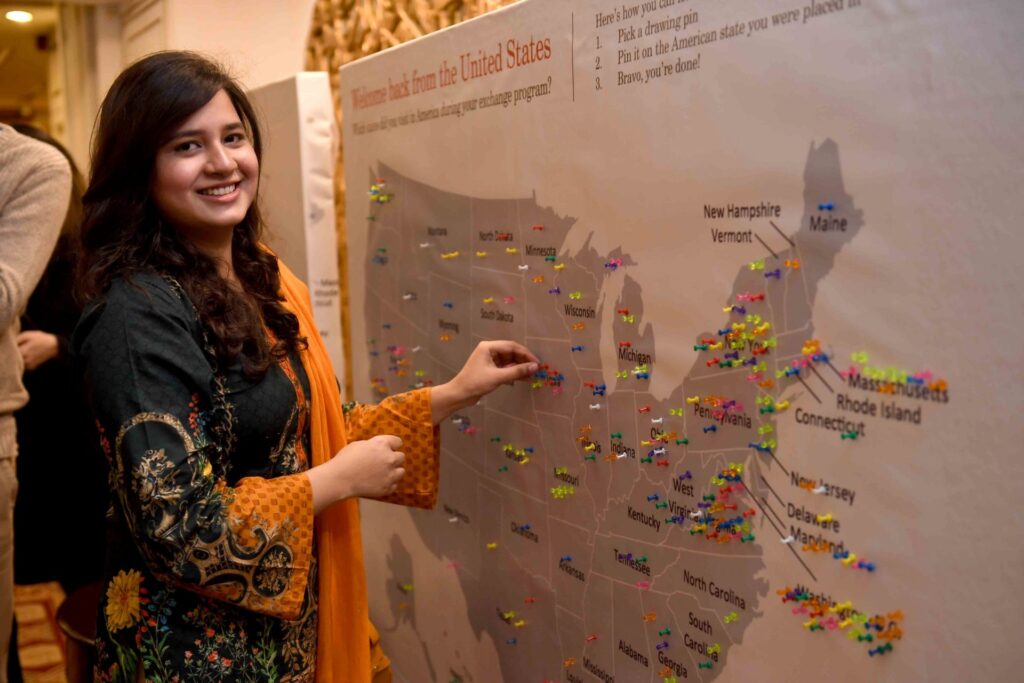FAQs
How do you become a diplomat?
The U.S. Department of State leads America’s foreign policy efforts, advancing our nation’s interests and national security abroad. Diplomats represent and further the interests and…

While the visible forms of diplomacy are carried out by government professionals, in reality, every American can practice diplomacy in everyday life.
When businesspeople, teachers, students, scientists, athletes, artists and musicians share work, performances, ideas, and experiences during visits abroad, they represent their country and thus act as citizen diplomats. All of these encounters produce subtle moments of diplomacy—an exchange of impressions and information about people and culture through individual contacts.
The Department of State, through a variety of programs, sends many of these citizen diplomats overseas to teach in schools, conduct research with local scientists, work with local artists and athletes, and perform alongside local actors, dancers, and musicians. Their direct interaction with people of all ages and cultures sows new seeds for understanding.
And while few of us will ever be named ambassador to a foreign country, every time we travel abroad or even meet a foreign citizen in the United States, we are citizen diplomats, reflecting and representing the United States.

Citizen Diplomacy is the concept that the individual has the right to help shape U.S. foreign relations “one handshake at a time.” Citizen diplomats can be students, teachers, athletes, artists, business people, humanitarians, adventurers, or tourists. They are motivated by a desire to engage with the rest of the world in a meaningful, mutually beneficial dialogue.
By traveling overseas, you are like a diplomat. You are representing the United States and are sometimes the first interaction someone overseas has with our nation. Often, the first impression of a nation comes from its people, and that could be you! . Your behaviors and interactions offer impressions of what your home country is like.
Social media is a modern-day tool that can be used to represent your nation as well as a platform to advocate for international issues you feel strongly about. It is an outlet for you to share your voice, culture, and community with the world.
Modern technology provides access to the world in a way never seen before. The ability to access information in seconds allows the world to stay interconnected. You can contribute to this by:
Become informed about the world and what’s happening in it. The relations between countries encompass political trends, economic ties, cultural exchanges, and visitors crossing borders. Knowing these current events helps you interact knowledgeably with others and learn what needs to be addressed.
Is there an international issue that you feel strongly about? Do you agree with how the issue is being handled? If not, write your Representative or Senators to share your thoughts on our nation’s foreign policy. Or share your thoughts by contacting the Department of State. You can also join a non-governmental organization that promotes an international cause you believe in.
Immerse yourself in another language and culture and become an exchange student. Learn more at Exchanges@State
The State Department offers a variety of student programs in Washington D.C. and abroad in our embassies and consulates. These experiences offer students a unique perspective on diplomacy in action and what a career in the foreign or civil service looks like. Learn more about internships and fellowships.